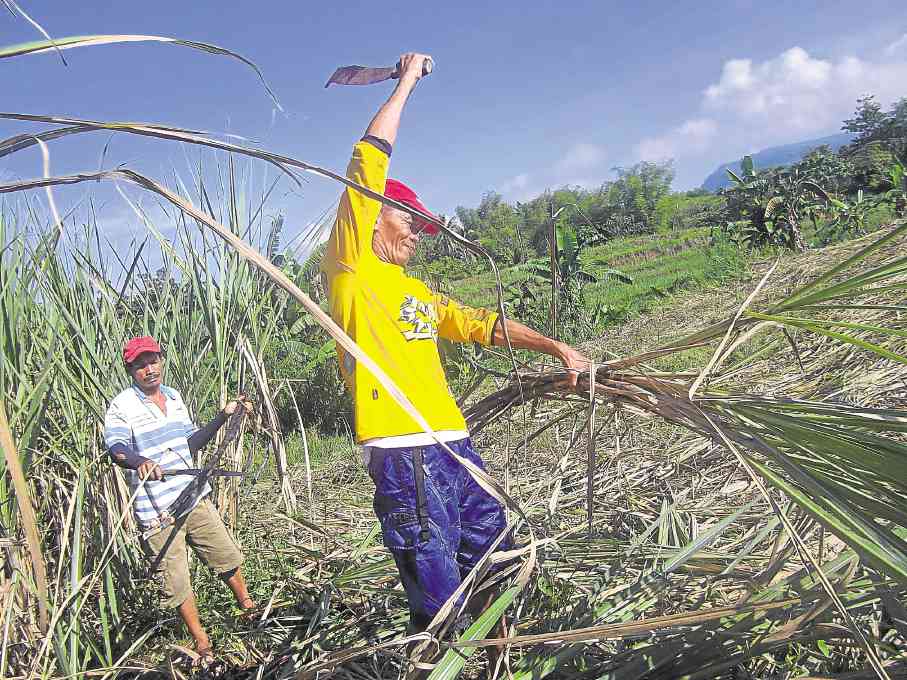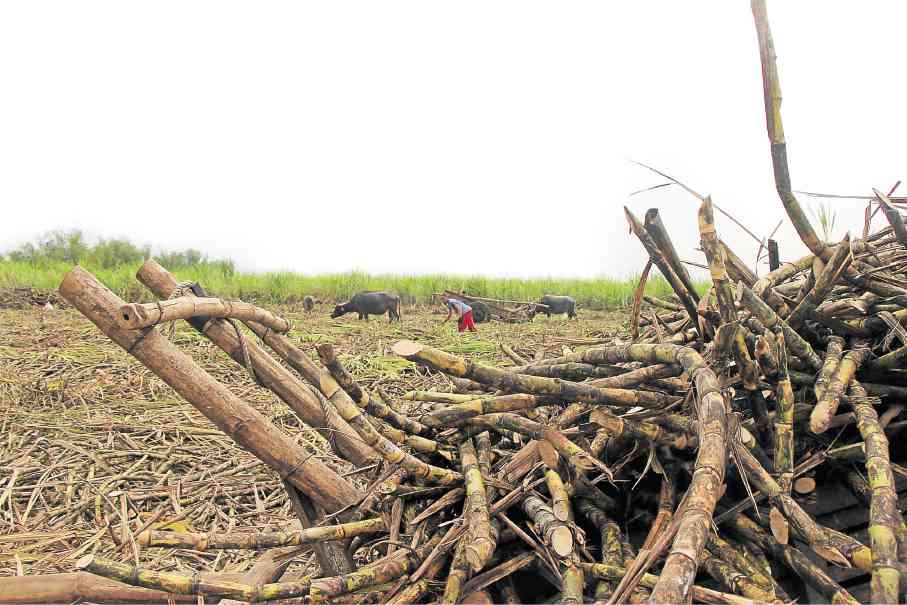‘Sweet’ redemption through group farming
La Castellana, Negros Occidental—Almost four decades ago, farmer Mario Patricio took up arms to resist the elite landlords or “hacienderos.”
Today, this 60-year-old man’s gnarled hand still holds on tightly to his weapon. However, he no longer holds a gun, just a sharp machete.
He wields the machete to reap the fruits of his labor in the 56-hectare sugarcane plantation he and 79 fellow agrarian reform beneficiaries (ARBs) own and manage under the communal farming system.
This piece of land used to be part of Hacienda Isabel until it was awarded in 2000 under the Comprehensive Agrarian Reform Program (CARP) to the members of then Isabel Farm Workers Union (IFAWU), now Minoro Isabel Agrarian Reform Beneficiaries Association (MIARBA).
Land struggle
Like other oppressed workers, Patricio, at 24, became an armed supporter of the underground New People’s Army (NPA) amid the widespread poverty caused by the sugar crisis in the sugar-producing Negros Island in the mid-1980s. The crisis was the effect of the United States’ (US) reduction of its sugar imports.
Thousands of farm laborers were also mistreated by hacienderos who solely owned farms and controlled sugar mills then. They were paid meager wages and even prohibited from planting crops other than sugarcane.
“When the landlords left, some 50 families in Barangay Sag-ang occupied the ‘hacienda’ and planted rice and other crops so we could survive. But with the serious threat of the return of the hacienderos, we tightly held on to guns for protection,” Patricio, who chairs MIARBA, says in Ilonggo.
Nonetheless, hope sprang after the passage of the Comprehensive Agrarian Reform Law (CARL) in 1988, which opened up an opportunity for workers to own the lands they had been tilling for ages.
‘Sweet’ redemption
Patricio says his life has significantly improved due to the agrarian reform program.
From a mere farm worker during the martial law period, he now owns a tricycle, rice mill and 3.5-hectare rice and sugarcane field separate from the communal farm.
He also no longer lives in fear, settling happily with his wife Mona in his own own house and lot.
Furthermore, he couldn’t be more grateful as he succeeded in sending his six children to school, allowing them to achieve their own dreams.
“My kids are now professionals. My eldest is a teacher, the other two are mechanics and the rest are still in school. Thanks to the agrarian reform program and communal farming for these little triumphs,” Patricio, an elementary graduate, proudly says.
Collective effort
Other members of MIARBA share similar success stories. But it didn’t come easy and instead entailed a lot of hard work and concerted effort.
After legally acquiring the land through a collective certificate of land ownership (CLOA), MIARBA thought of seeking proper knowledge and resources to cultivate the farm.
In 2001, it partnered with fair trade organization Alter Trade Foundation, Inc. (ATFI), an offshoot of the Alter Trade Group.
“I didn’t know how to dream. What I only knew was I had to work to get through the day. But when we met ATFI, we were taught to dream not just for ourselves but for the whole community,” Patricio says.
Established in 1977, ATFI now claims to operate as a social enterprise focused on supporting sustainable agriculture and organic farming. It was initially funded by German non-government organization Bread for the World–Protestant Development Service (BFDW-PDS).
ATFI provided loans and training in financial, organizational and agricultural management to 15 people’s organizations (POs) with over 500 members in the municipalities of La Castellana, La Carlota, Bago, Murcia, Talisay and Don Salvador Benedicto.
Although it has stopped securing certification from Fairtrade International and Institute for Marketecology due to the costly certification fees and low yields during the conversion period, it still consistently complies with the international standards of fair trade and organic muscovado farming, says ATFI program director for Sustainable Production Analyn Escanes.
“Our partner-farmers strictly practice non-application of chemical fertilizers, pesticides and insecticides. They also integrate inter-cropping and livestock production in the enterprise,” she says.
ATFI’s partnership with producers’ organizations such as the Negros Organic and Fair Trade Association (NOFTA) has also opened up a ready market for the farmers’ produce. Financial institutions Land Bank and Foundation for a Sustainable Society (FSSI), meanwhile, have offered credit lines amounting to P15 million to support communal farming.
Communal farming is a type of agricultural production in which multiple farmers manage the farm as a joint business.
With ATFI’s helping hand, Patricio and his group figured that venturing in such an enterprise was the best option.
“Originally, we had 133 members. But only 80 stayed as the others didn’t want to engage in communal farming. But now, most of them have their land leased to hacienderos and ended up working for MIARBA,” he says.
Sustainable enterprise
MIARBA started managing its muscovado farm with an initial loan of P3.36 million from ATFI, at an interest rate of 21 percent a year.
Unlike other microfinance schemes, ATFI’s service is geared toward teaching POs the ropes of managing the business.
With its members actively working and managing their plantation, MIARBA has consistently improved its yield.
In 2016 alone, it earned P7.8 million in annual gross income and a profit of P3.28 million, 72 percent of which was allotted for the individual dividends of its 80 members, 10 percent each for labor incentive and capital build up (CBU), 5 percent for land amortization and 3 percent for organizational fund.
This year, it projects a gross income of P9 million.
The association has been also reinvesting since 2011 some of its profits into other enterprises like a swine project. 90 percent of the income is reinvested in the group.
The group also generates more income from machines and equipment it has acquired—farm tractors, welding machines, mechanical dryer and dump truck, among others.
It has also built a health center and “botika ng bayan” or a community drug store.
According to a 2014 impact report commissioned by BFDW-PDS, the standard of living of the majority of these partner-POs improved. Similarly, the households’ access to basic needs such as food, education, health, electrification and water supply also increased.
Each farmer’s household generates an average annual income of P67,747.
Empowering women
The enterprise has also been empowering women, who now occupy leading positions in the organizations, the study revealed.
Although sustainable agriculture and communal farming practices thrive with aid from non-government organizations (NGOs), it has been a challenge to reach more agricultural communities.
“Introducing sustainable agriculture to other provinces with ARBs is hard as there are already other groups working there. But with our business model’s significant impact in the agrarian reform sector, government agencies and NGOs alike are starting to gain interest in it,” ATFI executive director Edwin Marthine Lopez says.
Lopez hopes that such “trade, not aid” concept would provide more ARBs with a life free from worries of oppression and unsustainable livelihood, like what Patricio and the rest of MIARBA members are finally enjoying.
















